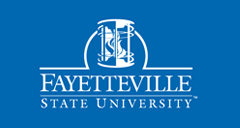Abstract
This qualitative inquiry explores the narratives of rural superintendents regarding their roles as moral agents in the politics of public school settings and how they view their moral and political advocacy as grassroots activism for student and community rights. Insights from superintendent narratives provided themes about the history, practice, and expectations of school leaders as political agents within their respective communities. These themes focused on activism and advocacy for equitable funding and policymaking that specifically related to transportation, testing, and technology. Findings describe and define how superintendents make meaning of their political and public obligations and provide data that can help leadership preparation programs better prepare candidates for meaningful political practice.
Recommended Citation
Lowery, Charles L.; Gautam, Chetanath; Hess, Michael Edward; and Mays, Chance D.
(2017)
"Rural Superintendents as Political Agents: Grassroots Advocacy in Appalachian Districts of Southeast Ohio,"
Journal of Research Initiatives: Vol. 3:
Iss.
1, Article 4.
Available at:
https://digitalcommons.uncfsu.edu/jri/vol3/iss1/4
Included in
Educational Leadership Commons, Other Educational Administration and Supervision Commons, Social and Philosophical Foundations of Education Commons
